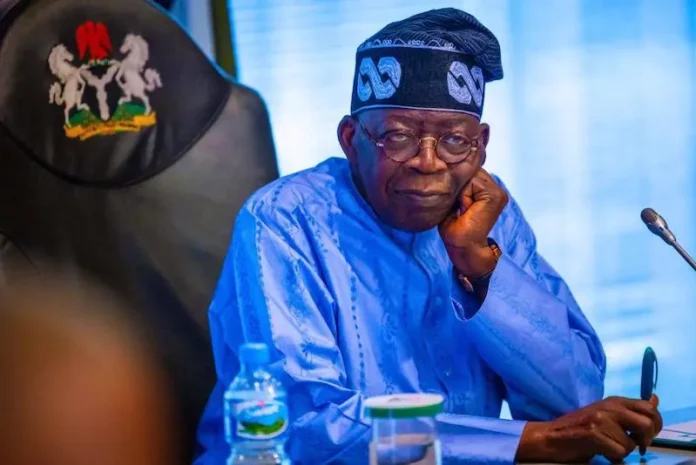President Bola Ahmed Tinubu has set up a committee to pay the outstanding debts owed to power Generation Companies (GenCos) and Distribution Companies (DisCos) in the country.
The Federal Government owes the GenCos and the DisCos ₦6 trillion in electricity subsidies. The Minister of Power, Adebayo Adelabu, had in February this year, during the public presentation of the National Integrated Electricity Policy and Nigeria Integrated Resource Plan in Abuja, said the government was owing the GenCos and the DisCos over ₦4 trillion in electricity subsidies.
According to Adelabu, ₦2 trillion is owed to the GenCos as legacy debt, while another ₦1.9 trillion is owed to them as part of the electricity subsidy for 2024. The DisCos are owed ₦450 billion for the 2024 electricity subsidy. The debts, however, have risen to ₦6 trillion.
The Permanent Secretary, Federal Ministry of Power, Mahmuda Mamman, revealed this while delivering a goodwill message at the 10th anniversary celebration of the Association of Power Generating Companies (APGC), which was held on Monday in Abuja, themed “A Decade of Powering Progress, Driving Nigeria’s Energy Transformation”.
The Permanent Secretary, who was represented by a director from the Ministry, Mrs Evangeline Olumoroti Babalola, said the committee has been charged with the task of not just clearing the debts but also establishing sustainable payment mechanisms that will check future accumulations.
“You are aware that your perseverance and voices have been heard at the highest levels of government. His Excellency, President Bola Ahmed Tinubu, in his characteristic responsive leadership style, is fully aware of the liquidity challenges facing the Nigerian Electricity Supply Industry, particularly the debt burden on generation companies. In recognition of the critical importance of resolving this issue for the sustainability of our power sector, Mr President has constituted a committee specifically mandated to address the payment of outstanding debts owed to the GenCos.
“This committee has been charged with the responsibility of developing a comprehensive framework for clearing these debts and establishing sustainable payment mechanisms that will prevent such accumulations in the future,” the Permanent Secretary said.
While commending the APGC’s positive impact in the Nigerian Electricity Supply Industry (NESI) and its commitment to national development, Mamman described the achievements as testaments to the technical expertise, financial investments and sheer determination of the generation companies.
The Permanent Secretary, however, noted that access to reliable and affordable electricity remains one of Nigeria’s most pressing developmental challenges, saying the gap between the current generation capacity and national demand continues to constrain economic productivity, limit social development and affect the quality of life of millions of Nigerians.
He added, “We gather to celebrate ten years of the APGC, a decade that tells a story of resilience, dedication, and extraordinary patriotism. As we reflect on this journey under the theme ‘A Decade of Powering Progress: Driving Nigeria’s Energy Transformation’, I want to acknowledge that over the past ten years, your association has been at the forefront of Nigeria’s power sector reform journey, which has not been without challenges. Issues ranging from gas supply constraints, infrastructure deficits, liquidity challenges and regulatory complexities have tested the resolve of stakeholders at every turn. However, it is in confronting these challenges that the true strength and ingenuity of our GenCos and the APGC have shone through.
“The generation companies represented here today have demonstrated a level of commitment to Nigeria that goes far beyond ordinary business practice. Your commitment to navigating complex challenges while consistently striving to generate power to illuminate homes, energise businesses and drive economic growth across our great nation, even in the most difficult circumstances, is commendable and does not go unnoticed. These achievements are testaments to the technical expertise, financial investments and sheer determination of the generation companies.
“Despite being owed substantial debts in billions of naira that have accumulated over the years, you have not abandoned your posts. In the face of severe liquidity challenges that would have forced closure in any other industry, you have kept the turbines running, the lights on, and the wheels of our economy turning. This is not just business; this is patriotism in action. For this extraordinary sacrifice and dedication to the Nigerian Electricity Supply Industry (NESI), we owe you a profound debt of gratitude — and indeed, we owe you payment of the actual debt.”
Earlier in her welcome address, the MD/CEO APGC, Dr Joy Ogaji, said the Companies in the next decade will focus on deepening engagement on energy transition and climate resilience; strengthen investor confidence through consistent policy advocacy; promote new technologies and renewable integration while also ensuring that every GenCo, regardless of size, thrives within a fair, efficient, and competitive market.
“Over the past decade, the APGC has remained unwavering in its mission to provide a level playing field for members, share knowledge, and promote best practices that enhance operational excellence and policy integrity within NESI.
“Through constructive dialogue and firm advocacy, APGC has engaged government, regulators and market operators to improve performance, liquidity, market transparency, and payment discipline, strengthened industry collaboration between GenCos, gas suppliers, NBET, and the Transmission Company of Nigeria. Promoted discussions on tariff rationalisation, contract sanctity, and investor protection and supported capacity-building initiatives and represented GenCos’ collective interests at national and international energy dialogues.
“We have not only built relationships; we have built trust. We have not only spoken; we have been heard, and through perseverance, we have ensured that the voice of Power generation Companies, the heart of Nigeria’s electricity system, remains strong and relevant.
“While we celebrate, we must also confront reality. The sector still faces recurring challenges, endemic liquidity challenges now hampering the operations of the GenCos, gas shortages, inadequate grid infrastructure, and regulatory uncertainty.
“These seeming endemic challenges are not insurmountable and not reasons for despair, they are reasons for resolve, because each challenge reminds us that progress requires strong political will, focused leadership, persistence and transformation demands unity,” Dr Ogaji said.

